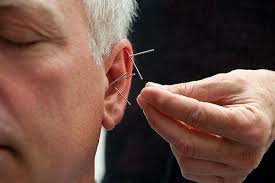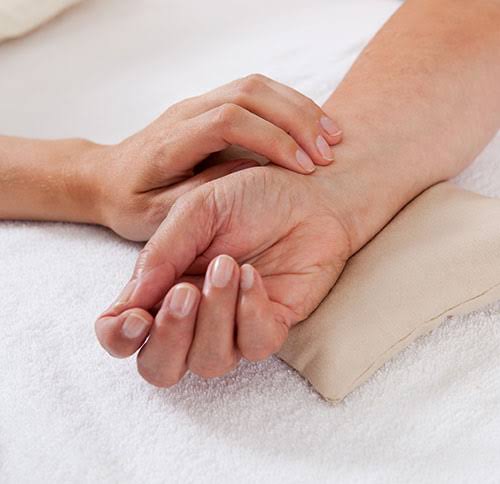Welcome to my Blog!
Here, I will share practical tips, insights, and advice on how acupuncture and Traditional Chinese Medicine can support your health and wellbeing.
From improving sleep and easing stress to supporting hormonal balance and digestive health, I explore natural, holistic ways to help you restore balance in your daily life. You’ll also find seasonal guidance and simple self-care practices that you can use at home.
Whether you’re new to acupuncture or already familiar, my goal is to make natural healthcare approachable and relevant, helping you feel your best.
**Click here to visit my Blogger site or see below for the most recent post**
26/11/25
NADA Auricular Acupuncture

What is the NADA Protocol?
The NADA Protocol is a gentle ear‑acupuncture method that uses up to five small, sterilised needles placed in specific points on each ear. acudetox.com+2nada-norge.no+2 Originally developed for addiction support and “detox,” it’s now used in a wide range of settings — from mental‑health support and trauma relief to community wellbeing and stress management. nadagbacupuncture.co.uk+1
During a session, people sit together quietly (often in groups) for 20–45 minutes, giving space for the treatment to settle in — no talking necessary, just stillness, breath and time. acudetox.com+1
What the Points Are for & What It Can Help With
The five standard ear points used in the protocol are thought to support different aspects of the nervous system and emotional regulation. nada-norge.no+1 Because of this, people often use NADA for a range of issues — including stress, anxiety, emotional overwhelm, trauma, menopausal or hormonal shifts, difficulty sleeping, concentration problems, and managing general nervous‑system overload.
In community settings, many clients find it helpful when they feel “stretched thin,” overwhelmed, or simply in need of a reset: a gentle, grounding pause.
What Research and Clinical Reports Say
- A 2020 observational study in a psychosomatic ward found that patients receiving NADA sessions reported significant reductions in stress and agitation, along with improved overall quality of life metrics. Cambridge University Press & Assessment
- In a mixed‑methods study from Iceland involving mental‑health service users, participants reported decreased pain, anxiety, stress, cravings, and depression — plus improved sleep — after ten NADA‑style sessions. Many described a profound sense of relaxation, reduced mental burden and improved well‑being. LIDSEN Publishing
- In the context of substance use and addiction treatment, some studies have documented that NADA — when used as an adjunctive therapy alongside conventional care — is associated with improvements in quality of life, energy levels, self‑esteem, reduced substance use (including alcohol and tobacco), and better longer-term outcomes. PubMed+2NADA Scotland+2
That said — as with many complementary therapies — research is mixed. Some controlled trials did not find clear differences between NADA and relaxation or sham protocols in reducing anxiety, cravings or improving sleep when used alone. PMC+2MDPI+2 What many experts and practitioners emphasise is that NADA works best as part of a broader holistic or therapeutic plan — not as a “magic bullet.” acupuncturetoday.com+1
Why NADA Social — and Why It Matters
At NADA Social (Newcastle upon Tyne), we believe in the value of simple, accessible tools to help people navigate stress, emotional load, life transitions (like menopause or neurodiverse challenges), and everyday overwhelm. The NADA Protocol offers a gentle, non‑verbal, community‑friendly way to support your nervous system and emotional balance — and the evidence and client experiences suggest it can be a valuable complement to many people’s wellbeing toolkit.
Whether you’re seeking relief from anxiety, support through menopause or life change, or simply an hour’s pause to breathe and reset — NADA can offer a soft landing.
For all upcoming NADA Socials click here. Private sessions can also be booked here at Dance City.
16/11/25

What to Expect at Your First Acupuncture Appointment
If you’ve never tried acupuncture before, you might be wondering what your first appointment will be like. I aim to make your experience gentle, welcoming and completely tailored to you. Knowing what to expect can help you feel calm and confident before your first session.
A Warm Welcome
When you arrive at Dance City, I'll come and meet you at reception and show you to the treatment space. We’ll then take some time to talk about why you’ve come, any health concerns, and what you hope to achieve from treatment. This conversation helps me create a personalised plan and ensures you feel heard and supported.
Acupuncture is most effective when it’s tailored to your body and lifestyle.
Prior to your initial appointment I will email you with an Initial Consultation Form for you to complete and we will discuss this in-depth during your first session.
- Your medical history and any current conditions
- Sleep, digestion, stress, and mood patterns
- Your diet, exercise, and daily routines
- Any specific symptoms or concerns
This detailed consultation allows me to understand the root of what’s happening in your body and not just the surface symptoms. It also gives you the chance to ask any questions. For some patients coming in with acute injuries, a less detailed intake may be preferred.
With permission, I will also undertake a tongue and pulse diagnosis. In Traditional Chinese Medicine, tongue and pulse diagnosis are important ways to assess your overall health and energy. By observing the tongue’s colour, shape, and coating, and feeling the subtle qualities of your pulse at different positions, I can gain a better insight into your internal balance. These observations help to guide your individual treatment plan and allows me to develop a more effective points prescription.
The Treatment
After the consultation, we’ll begin your acupuncture session. Depending on your needs, this may include:
Aftercare and Follow-Up
After your session, you’ll usually rest for a few minutes to let your body integrate the treatment. It’s normal to feel relaxed, energized, or sleepy — everyone responds differently. I'll give you advice on self-care at home, and if needed, we’ll discuss a follow-up plan tailored to your goals. We can also discuss how many treatments you will require and you can book any follow-up appointments before you leave.
Your first acupuncture appointment is a gentle introduction to a practice that can support your energy, mood, and overall wellbeing. It’s a space to feel heard, cared for, and nurtured — and the first step toward balance in your body and mind.
01/10/2025

Acupuncture for Insomnia: A Traditional Chinese Medicine Perspective
Sleep is one of the foundations of health. When it is restful and consistent, it restores the body, calms the mind, and helps us meet each day with clarity and resilience. But when sleep is disrupted, everything else can feel harder. Insomnia is one of the most common issues people face today, and it takes many forms: difficulty falling asleep, waking frequently through the night, early morning waking, or restless sleep that doesn’t feel refreshing.
Modern life—with its screens, stress, and irregular routines—certainly plays a role. But insomnia has been recognised and treated in Traditional Chinese Medicine (TCM) for thousands of years. Acupuncture, herbal medicine, and lifestyle guidance all offer effective, natural ways to support healthy sleep.
In this post, we’ll explore how TCM understands insomnia, the different “patterns” that can cause it, and how acupuncture works to restore balance. We’ll also share practical tips you can use at home to improve sleep quality.
Understanding Insomnia in Traditional Chinese Medicine
In Western medicine, insomnia is generally classified as a sleep disorder, sometimes linked with anxiety, depression, or stress. In TCM, insomnia is seen as a sign of imbalance in the flow of Qi (energy), Blood, and Yin and Yang within the body. Sleep is governed by the Heart and the Shen (spirit or mind). When the Shen is calm, sleep is peaceful; when disturbed, sleep is restless or absent.
But the Heart rarely acts alone. Other organ systems influence sleep:
- The Liver stores Blood and regulates the smooth flow of Qi. When Liver Qi or Blood is imbalanced, it can disturb the Shen.
- The Spleen produces Qi and Blood. Weakness here can lead to an undernourished Heart and restless mind.
- The Kidneys store Essence and anchor Yin and Yang. If depleted, Yin cannot contain Yang at night, leading to difficulty sleeping.
By identifying which systems are out of balance, I can tailor treatment to the individual, rather than applying a one-size-fits-all approach.
Common TCM Patterns of Insomnia
Here are some of the main patterns of insomnia described in Traditional Chinese Medicine:
1. Heart Yin Deficiency
- Symptoms: Difficulty falling asleep, frequent waking, vivid dreams, palpitations, night sweats, dry mouth or throat.
- Explanation: Yin is cooling and calming. If Heart Yin is insufficient, Yang flares up and disturbs the Shen.
- Acupuncture focus: Nourish Yin, calm the Shen, anchor the Heart. Points may include HT-7 (Shenmen), SP-6 (Sanyinjiao), and KI-3 (Taixi).
2. Liver Qi Stagnation Turning to Heat
- Symptoms: Trouble falling asleep, irritability, vivid or disturbing dreams, headaches, red eyes, feeling hot at night.
- Explanation: Stagnant Liver Qi generates internal heat, which rises and agitates the mind.
- Acupuncture focus: Move Liver Qi, clear heat, settle the Shen. Points may include LR-3 (Taichong), GB-20 (Fengchi), and LI-4 (Hegu).
3. Spleen and Heart Qi Deficiency
- Symptoms: Light sleep, frequent waking, difficulty concentrating, poor memory, fatigue, poor appetite, pale complexion.
- Explanation: Weak Spleen cannot generate enough Qi and Blood to nourish the Heart, leaving the Shen unrooted.
- Acupuncture focus: Tonify Spleen Qi, nourish Heart Blood, calm the Shen. Points may include ST-36 (Zusanli), BL-20 (Pishu), and HT-7 (Shenmen).
4. Kidney Yin Deficiency with Empty Heat
- Symptoms: Difficulty falling asleep, frequent waking, tinnitus, lower back pain, night sweats, hot flushes, anxiety.
- Explanation: Kidney Yin is the foundation of Yin throughout the body. When depleted, Yang rises unchecked, disturbing the Heart and Shen.
- Acupuncture focus: Nourish Kidney Yin, anchor Yang, calm Shen. Points may include KI-3 (Taixi), BL-23 (Shenshu), and HT-6 (Yinxi).
5. Phlegm-Heat Obstructing the Mind
- Symptoms: Restless sleep, heavy feeling in the head, chest oppression, dizziness, poor digestion, profuse phlegm.
- Explanation: Dampness and phlegm accumulate, transform into heat, and obstruct the clear communication between Heart and Shen.
- Acupuncture focus: Transform phlegm, clear heat, open the orifices. Points may include ST-40 (Fenglong), CV-12 (Zhongwan), and PC-5 (Jianshi).
Each of these patterns describes a different root cause of insomnia. In clinic, I often see combinations of these, and treatment evolves as the patient’s balance shifts.
How Acupuncture Helps with Insomnia
Acupuncture works on multiple levels to improve sleep:
- Calming the Nervous SystemResearch shows that acupuncture can regulate the autonomic nervous system, reducing stress hormones and promoting parasympathetic (“rest and digest”) activity. This helps calm the body before sleep.
- Balancing Yin and YangBy stimulating specific points, acupuncture restores the natural rhythms of Yin (rest, cooling, night) and Yang (activity, warmth, day). This supports the body’s internal clock.
- Regulating NeurotransmittersAcupuncture may influence serotonin and melatonin production, both vital for healthy sleep cycles.
- Treating Root ImbalancesMost importantly, acupuncture addresses the underlying TCM pattern—whether that’s nourishing Yin, moving stagnant Liver Qi, or tonifying Spleen Qi—so improvements are long-lasting.
Many people notice changes after just a few sessions: falling asleep more easily, fewer night wakings, or deeper, more refreshing sleep.
Lifestyle Tips for Managing Insomnia
Acupuncture is powerful, but lasting improvement also comes from daily habits that support balance. Here are some TCM-inspired tips you can use at home:
Create a Sleep-Friendly Environment
- Keep your bedroom cool, dark, and quiet.
- Avoid screens for at least an hour before bed; the blue light overstimulates the mind.
- Use calming scents such as lavender or sandalwood to settle the Shen.
Support Yin with Evening Routines
- Engage in gentle activities before bed: reading, meditation, stretching, or a warm bath.
- Sip calming teas such as chamomile, jujube seed, or chrysanthemum.
- Avoid spicy foods, caffeine, and alcohol in the evening, as they create internal heat and disturb Yin.
Nourish Qi and Blood through Diet
- Eat regular meals to support the Spleen.
- Include foods that nourish Blood and Yin, such as dark leafy greens, berries, black sesame seeds, walnuts, and lean meats.
- Avoid excessive raw, cold, or greasy foods that create Dampness and Phlegm.
Manage Stress and Emotions
- Practice breathing exercises or meditation to calm the Shen.
- Gentle movement like tai chi, qi gong, or walking can smooth Liver Qi.
- Journaling before bed can help release worries that otherwise keep the mind busy.
Align with Natural Rhythms
- Aim to go to bed before 11pm, when the Liver and Gallbladder begin their peak time for detoxification and repair.
- Wake up with the light where possible, keeping a consistent sleep schedule.
- Rest when your body asks for it—don’t push through exhaustion.
Final Thoughts
Insomnia is more than just a restless night—it’s a sign that the body and mind are out of harmony. In Traditional Chinese Medicine, sleep is deeply connected to the balance of Yin and Yang, the nourishment of Blood, and the calmness of the Shen. By identifying the root pattern, acupuncture helps restore this balance, making sleep more natural and restorative.
Alongside treatment, small daily practices—supporting Yin, calming the mind, eating nourishing foods, and creating a bedtime ritual—can make a profound difference.
If you’re struggling with sleep, acupuncture may be able to help you find the rest your body and mind need. At Jane Eaglesham Acupuncture, I offer personalised treatments in a calm, supportive space. Book an appointment today and take the first step towards more peaceful nights and brighter days.




